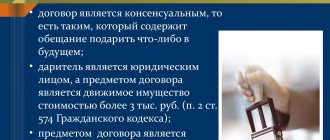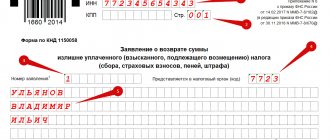Notarized consent to travel: what is it and when is it necessary?
The procedure for the departure of minor citizens of the Russian Federation abroad is determined by the provisions of Art. 20 Federal Law No. 114 of August 15, 1996 “On the procedure for entry/exit from the Russian Federation” (hereinafter referred to as Federal Law No. 114). The article provides for the possibility of a minor citizen leaving the territory of Russia with one of his parents. If a child leaves without his parents, the mother/father gives his/her written, notarized consent. In accordance with the explanations provided in FSB Letter No. 21/7/3/E-2110 dated June 17, 2015, the consent of the mother or father is sufficient for minors to cross the border.
At the same time, if the child is accompanied by one of the parents, the consent of the other is not required to leave the Russian Federation.
Up to the age of 18, you can travel abroad with one of your parents without the consent of the other until he has expressed his disagreement and notified him to the border service.
But do not forget that when crossing the domestic border, you will have to be guided by the rules of the Russian Federation and the country of arrival. That is, if you leave the territory of Russia without pre-certified consent from the second parent, you will not necessarily end up at your destination. To be sure that a minor is not a victim of abduction, many countries require the consent of the second parent.
As a rule, the document is drawn up on behalf of one parent if the minor is traveling with his mother or father, or from both if, for example, they decided to send the child alone on a plane abroad. In any case, you should clarify the rules of the country of arrival in advance.
A number of countries have a similar requirement for a visa, and this is another type of consent that may be needed to cross the border. As a rule, such consent is issued in the form of a power of attorney in favor of the parent who will accompany the minor. Registration requirements may differ at different consulates. For example, when submitting documents for an Austrian Schengen visa, a translation into English is required, while when applying for a visa at the Belgian consulate, such a translation is not required.
So, consent for a child to travel abroad is necessary when:
- the rules of the destination country require such a document;
- this paper is required to obtain a visa;
- a minor crosses the border independently or with a third party - a relative, coach, class teacher.
What is consent to participate in an auction?
Willingness to participate is always stated in the first part of the application.
It can be drawn up as an independent document along with specific indicators of the product (if necessary) and attached together with the second part to the form drawn up on the ETP. Moreover, Part 8 of Art. 66 of Law No. 44 requires submitting an application in the form of two electronic documents (first and second parts), sent to the customer simultaneously. And in accordance with Art. 60, all documents exchanged between the parties to the procurement procedure must be signed with an electronic signature. However, the ETP functionality allows the supplier to accept the customer’s terms by simply checking the box next to the ready-made statement in the form window. Next, you need to attach the second part of the application and sign all documents with an electronic signature. Therefore, if we are not talking about specific indicators of the product, then such signed wording will be sufficient for participation. In this case, a separate file is not needed.
Which countries require a power of attorney for the departure of a child?
Most post-Soviet countries, especially those that have a visa-free regime with the Russian Federation, have relatively flexible migration rules: consent is required only when a minor crosses the border, accompanied by adults who are not parents, or independently. If the mother or father is traveling with the child, it is not necessary to provide a power of attorney.
In the EU and Schengen countries, you will need a notarized consent to remove the child when preparing documents for a visa. The power of attorney is issued by one of the parents or both if the minor is traveling without them.
Many EU countries also require such consent when crossing the border, even with a visa. Only Belgium, the Netherlands, Norway, Bulgaria, the Czech Republic and Sweden abandoned this practice. And, for example, France allows the entry of a child and one of his parents without formalized consent, if they have the same surnames.
When applying for visas to Romania, Croatia, Italy and a number of other countries, accompanying adults are issued a visa for multiple trips, and children are issued only with travel dates. To avoid such a situation, parents need to obtain cross-consent for their child to travel abroad, even if the whole family goes on a trip. The period of such permission must be no less than the validity period of the visa.
As for countries that are not part of the Schengen area, most of them also require a power of attorney when a minor enters with one of the parents, a third party or when crossing the border independently. These include New Zealand, USA, Canada, Japan, Singapore, Malaysia, Thailand, Vietnam and others. In addition, minors are prohibited from entering Thailand, the UAE and Bahrain unless accompanied by their parents.
The exceptions are Türkiye and Egypt, which are popular among Russian tourists. Here the answer to the question of whether the father’s permission is needed for the child to travel abroad with his mother will be negative: no, it is not necessary. A power of attorney is required only when traveling with third parties or independently. In any case, when planning a trip abroad, it is recommended to familiarize yourself with the migration legislation of the country of interest in advance. In addition, you should inquire about the rules of the airline that will be flying. Some of them require mandatory accompaniment of children under 16 years of age.
Who has the right to process information about a person?
According to paragraph 2 of Article 3 of Law No. 152-FZ of July 27, 2006 “On Personal Data,” the operator for processing personal information can be a government agency, municipal department, enterprise or individual that comes into contact with the individual and uses personal data.
At the same time, the noted structures and persons are classified as operators, regardless of their inclusion in the register controlled by Roskomnadzor. To transfer an employee’s personal information to another operator, it is necessary that the management of the institution obtain consent from the employee.
How to fill out consent to the processing of personal data in 2021
When applying for a job, registering on any official website of a government department or filling out, for example, a visa abroad, an individual provides his personal data. Distribution of such information is permitted only with the consent of its owner. To issue such consent, it is enough to sign on the documents provided. In more serious situations, for example, when applying for a visa, permission to use personal information is drawn up on a separate form.
This form can be filled out in any form or on a form developed by the institution. However, in any case, the document will need to display the following information:
- Name of the employing company.
- Place and date of issue of the permit.
- FULL NAME. citizen, his passport details and registration information.
- Then in the main section of the form it is reflected in detail:
- Exactly what personal information can be used.
- For what purposes is it permissible to use them?
- Validity period of the permit and conditions for its revocation.
- It is important to note that permission is not granted by force.
- Finally, you will need to sign the document.
Procedure for document execution
Consent for the departure of children cannot be drawn up in free written form.
Only a notary can make a power of attorney for a child to travel abroad, certifying it with his signature and seal.
The parent (or both) must provide the lawyer with their passport, birth certificate and child’s international passport. A personal visit to a notary by a minor and persons who will accompany him on a trip abroad is not necessary.
Registration of permission for a child to travel abroad is carried out on letterhead, which is certified by an appropriate notary inscription. In this case, the following information must be reflected in the text:
- personal data, citizenship, place of residence and passport details of each parent authorizing departure;
- the fact of parental consent to leave, indicating the full name, place of residence and details of the minor’s identification documents;
- a list of states that the minor and his accompanying person intend to visit;
- if necessary, the period during which the child will stay in specific countries;
- passport details of the accompanying person, his place of residence;
- recording the fact of transfer to the accompanying person (if it is not the father/mother) of the powers to protect the rights and interests of the minor abroad.
A sample power of attorney for one or both parents is presented below.
Which country would you rather live in? ⚡ Take the test in 2 minutes
When presenting consent at the border, a notarized translation into the national language of the country of arrival will be required.
Is it possible to process information about a person without the consent of the owner?
Legislation prohibits obtaining personal information without the voluntary permission of its owner. An exception may be the situation when the data is used without permission to ensure the protection of his particularly significant rights.
These exceptions include:
- Issuance of an agreement to the database owner.
- It is in the interests of an individual to conclude a transaction on the following grounds:
- Providing data to educational and medical structures on the qualifications and education of personnel.
- Providing information about close relatives to receive alimony or social benefits.
- Determining the health of a subordinate to determine whether he can fulfill his obligations.
- Transfer of information to the prosecutor's office, police, military registration and enlistment office, security service, Pension Fund.
- To prevent harm to human health or a threat to his life.
Written statement of consent to the processing of personal data
Any action with personal data must be carried out strictly after the written permission of the owner. The oral version does not work here. Therefore, in order to obtain such permission, a person undertakes to voluntarily submit written permission to use his personal information. This application must include:
- Passport details.
- Purpose of use.
- Name of the institution for which the data is being issued.
- Duration of the agreement.
- Conditions of review.
- Signature of the owner of the transferred data.
Cost and validity period of exit permit
The cost of a power of attorney to take a child abroad from a notary may vary depending on the region, locality and, in fact, the notary’s office. The price is formed due to two components - the cost of services for drawing up the document and its certification. Usually you can keep it under 1 thousand rubles, although prices may fluctuate around the city. For example, in St. Petersburg, private notaries charge 500-1.5 rubles.
The parents decide how long the child’s permission to travel abroad is valid. They can indicate a specific date by mentioning in the document the phrase: “This consent ceases to be valid from XX.XX.XXXX / the moment of return to the Russian Federation / the moment of expiration of the foreign passport.” Russian laws do not prohibit drawing up a permit once and using it until the child reaches adulthood. However, some countries require a new document. It is important to clarify this question before traveling abroad with your child.
Thus, the notary can issue consent with the dates of a specific trip, until a certain event (for example, reaching the age of majority or the expiration of a passport) or for a certain period - for example, 2-5 years.
The need to obtain a sample building permit from neighbors
Registration of the results of illegally carried out construction work is often carried out in court and requires significant material, time and psychological costs from the violator. By inquiring in a timely manner which construction work requires the consent of neighbors, you can avoid unnecessary litigation.
Coordination of redevelopment
If you plan to make changes to the design in any room of the apartment, it is worth remembering that this is a redevelopment.
And in addition to obtaining the consent of neighbors (if the transformations affect their interests), the redevelopment will also have to be approved by local authorities. Permission from neighbors is required only for construction work that may directly affect residents of nearby houses (apartments). This includes changes to the facade and load-bearing structures of an apartment building, any redevelopment in a communal apartment, construction work in common areas, construction of a house or building at a distance too close to the neighboring plot, and more. The result of the construction work performed should not offend the aesthetic, religious and other preferences of neighbors, as well as threaten their life, health and safety and contradict sanitary standards or fire safety standards. By signing a construction permit, individuals confirm that the planned changes do not in any way infringe on their interests. Thus, at the legislative level, possible disputes and disagreements between neighbors are prevented and regulated.
In apartment buildings, redevelopments that require permission from neighbors include:
- Dismantling the entrance doors to the apartment and installing new ones.
- Changes to the facade of the building, reconstruction of the balcony.
- Increasing the area of the apartment due to the common ownership of all residents.
- Changing the location of window and door openings, etc.
When building on your own separate plot, it is required to obtain the consent of neighbors if:
- A residential building is being built at a distance of less than 3 meters from the neighboring property.
- An outbuilding is being built at a distance of less than 4 meters from the neighbor’s property.
- A non-residential building is being built at a distance of less than 1 meter from the neighboring property.
- The windows of the constructed house will be located at a distance of less than 6 meters from the windows of the neighbor's house.
- The distance between buildings on your and your neighbor's property is less than that required by fire safety rules (from 6 to 15 meters depending on the material of the buildings). Read more about the rules for the location of buildings on an individual housing construction site here.
If any of the above-described construction work has already been carried out, but permission to carry it out has not been received, obtaining the consent of the neighbors is also necessary to formalize the changes. Having a building permit from your neighbors will greatly simplify the process of legalizing the redevelopment of an apartment or a new building on your own site. Find out how to legalize unauthorized construction in the article https://realtyinfo.online/4622-administrativnyi-sudebnyi-poryadok-legalizatsii-samovolnoi-postroiki.
It is worth noting: if a privatized apartment with several co-owners is being renovated or a house is planned to be built on a site that has several owners, then consent to carry out the work must be obtained from all co-owners.
Documents for a child to travel abroad
Obviously, consent alone for a minor to leave the country is not enough to pass the checkpoint. The following documents will be required for a child to travel abroad:
- personal passport, the validity of which must expire no earlier than 3 months after leaving the country of destination (this requirement is imposed by most states);
- internal passport (if available);
- birth certificate or other document confirming relationship with the accompanying person (in the absence of such relationship - only birth certificate);
- consent to leave;
- visa upon entry into a country with a visa regime.
Even if the child is included in the parent’s passport, he must obtain his own passport.
In accordance with clause 3 of Appendix No. 4 to Government Resolution No. 687 of November 18, 2005, the presence of information about a child in the parent’s passport does not provide the minor with the right to leave the country without his own document proving his identity abroad. This means that he can travel abroad only with his own passport and any other interpretation of this norm is a mistake.
If the child and parent have different surnames
Often, after a divorce, women return to their premarital surname. In this case, problems arise when traveling outside the country: a discrepancy in last names may cause border guards to suspect that the child is a victim of kidnapping or human trafficking.
To avoid trouble, present your birth certificate at the border. It indicates the parents, and therefore different surnames with the child will not arouse suspicion.
Even if divorced, each parent can take the child outside of Russia without the consent of the ex-spouse. However, issuing a power of attorney for travel to a third party will be much more difficult, especially if the parents do not maintain a relationship. Read more about this in the article “Permission for a child to travel abroad if the parents are divorced.”
How can a child travel abroad independently?
Crossing the border by unaccompanied minors is carried out according to the same rules as with an escort: it is necessary to present to the border guards a consent signed by at least one of the parents. At the same time, the law does not provide for prohibitions on independent border crossing for minors depending on their age.
If the necessary documents are available, including notarized consent, the child has the right to leave Russia at any age.
Another question is at what age can you fly abroad without your parents? As a rule, age restrictions are set by air carriers - as a rule, they require that a child under 14 years old fly only accompanied by an adult. You can travel with transfers from 14-16 years old, and some carriers allow direct flights from 12 years old.
In addition, airlines offer an escort service. For an additional fee, airline employees will provide care for the little passenger during the flight. Under these conditions, children over 5 years of age are allowed to fly independently. There is no upper age limit - you can order accompaniment for a minor up to 17 years of age.
Is consent required for an adult to travel for permanent residence?
From the moment of majority, a citizen acquires full legal capacity. Therefore, the permanent residence of a child abroad, if he has reached the age of 18, does not require the consent of his parents. An adult can independently move to any country.
However, let us remember that the interpretation of the concept of “majority” differs in different countries. For example, in South Korea and Canada, legal capacity begins at 19 years old, in Thailand and Japan - at 20 years old, and in Egypt, Monaco, Singapore and some US states - at 21 years old. Obviously, to move to these countries, if provided for by local legislation, parental consent may be required for an adult to travel for permanent residence. Details should be obtained from the diplomatic missions of the destination country.
If the mother/father is against the child leaving
If one of the parents is against his minor child going abroad, he has the right to impose a travel ban.
In accordance with the Rules approved by Government Decree No. 273 of May 12, 2003, it is enough to submit an application for a ban to the territorial unit of the Migration Service (OVM UMVD) at the place of residence, which will redirect it to the border service.
Such an application shall indicate personal data, date and place of birth, place of residence and citizenship of both the applicant and the child. The document is drawn up in free form and attached to the passport, a notarized copy of the birth certificate/other documents confirming the authority of the parent.
In the event of a ban being imposed in accordance with Art. 21 Federal Law No. 114, the issue of a child leaving the country can only be resolved through the court. Read more about this in the article “Ban on a child traveling abroad.”









